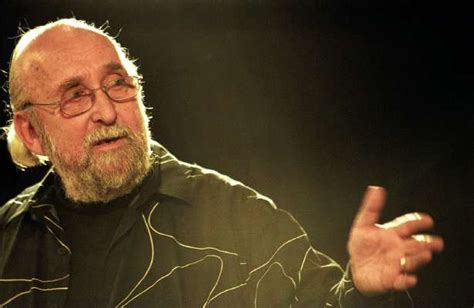A Quote by Margaret Atwood
Short forms are returning online. Interactivity is coming back; it was always there in oral storytelling.
Quote Topics
Related Quotes
The future of narrative? Built in, part of the human template. Not going away. The future of the codex book, with pages and so forth? A platform for transmitting narratives. There are others. The scroll is coming back (Twitter is a scroll.) Short forms are returning online. Interactivity is coming back; it was always there in oral storytelling. Each form has its pluses and its minuses.
I'm saying that the domain of poetry includes both oral & written forms, that poetry goes back to a pre-literate situation & would survive a post-literate situation, that human speech is a near-endless source of poetic forms, that there has always been more oral than written poetry, & that we can no longer pretend to a knowledge of poetry if we deny its oral dimension.
This was not a good idea coming home for Christmas. I'm too old. Years ago, coming back from schools or trips, I always expected some sort of new perspective or fresh insight about the family on returning. That doesn't happen anymore-the days of revelation about my parents, at least, are over... its time to move on. I think we'd all appreciate that.
The best memoirs - like This Boy's Life, or Crazy Brave [by Joy Harjo], for instance - bring you through a private river of storytelling that joins a major ocean of human struggle and joy. The act of enunciation - the forms and strategies of storytelling - are every bit as literarily serious as they are in poetry or other prose forms.
People always ask why I stay in the online space versus going to TV or film, like most people would do, and the answer is that there's opportunity for innovation online - not only innovation in storytelling, but also innovation in how you interact with your audience and that is very fulfilling to me personally.
Human beings are born solitary, but everywhere they are in chains - daisy chains - of interactivity. Social actions are makeshift forms, often courageous, sometimes ridiculous, always strange. And in a way, every social action is a negotiation, a compromise between 'his,' 'her' or 'their' wish and yours.
The storytelling mind is allergic to uncertainty, randomness, and coincidence. It is addicted to meaning. If the storytelling mind cannot find meaningful patterns in the world, it will try to impose them. In short, the storytelling mind is a factory that churns out true stories when it can, but will manufacture lies when it can’t.




































